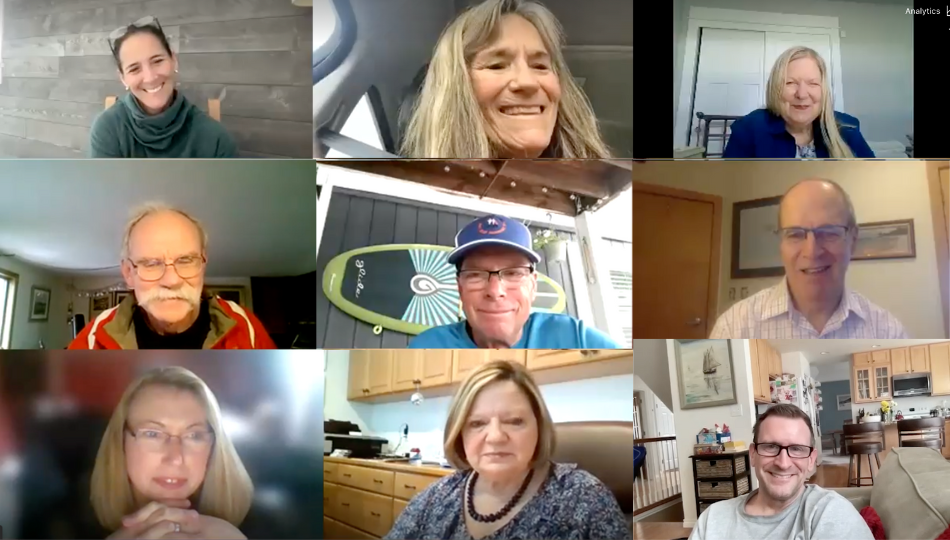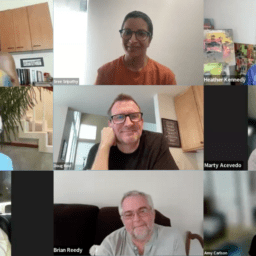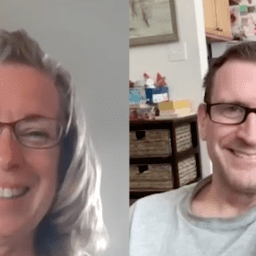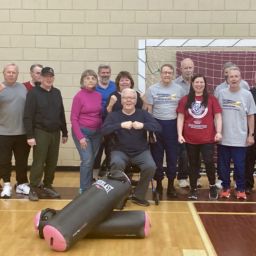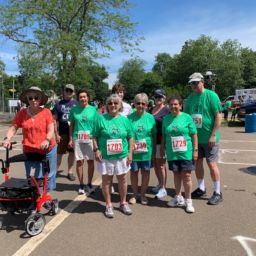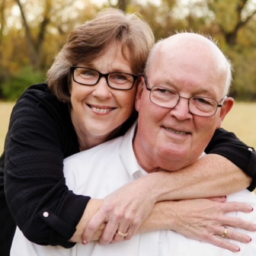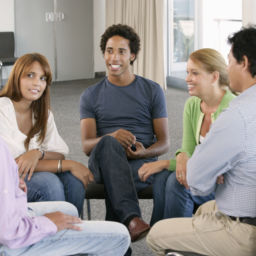In this video, Davis Phinney Foundation Ambassadors share tips on how to design, start, manage, and nurture a Parkinson’s support group. Whether in-person or virtual, co-ed or gender-specific, or general or topic-specific, these facilitators and people living with Parkinson’s have lots of ideas and lessons to share. Below, you’ll find a link to the YouTube recording of the conversation, a transcript, an audio link, and a summary of topics discussed in the session.
You can download a copy of the transcript here.
Note: This is not a flawless, word-for-word transcription, but it’s close.
You can download the audio for this webinar here: Audio How to Start and Run a Parkinson’s Support Group
Why Parkinson’s Support Groups are Important
Parkinson’s support groups are important because an active social life helps improve quality of life. A support group can connect you with people who may be experiencing similar successes and challenges to those you are facing and provide opportunities to learn new things. A support group can also simply be fun: some groups center meetings around playing a game while they talk. Others meet after exercise classes, which also helps with motivation to participate regularly in the exercise class.
Starting Out
At the outset, you’ll have some details to consider about the community you are in and the supportive Parkinson’s community you are hoping to build. Some things to consider include:
- Do you want to invite anyone with Parkinson’s, or do you want to focus on a specific group (women, men, people with YOPD)?
- Do you want to include care partners in the group, have a separate group for care partners, or only involve people with Parkinson’s?
- Will an in-person, online, or hybrid model be best for the people you are trying to reach?
The first STEP: How To Find People for your parkinson’s Support Group
Having a website or other online presence can be helpful, but most often, the best way to find participants for your group is to post fliers.
If you’re starting a new group, you might benefit from making two fliers: one to recruit initial participants and one to recruit participants once your group is up and running. The reason is that you might not know details about the time and location when you’re gathering the first participants.
There are a lot of great locations to post fliers, including:
- Churches
- Libraries
- Gyms
- Senior centers
- Assisted living facilities
- Neurologist’s offices
- Physical therapy offices
- Public bulletin boards in grocery stores and coffee shops
If you can connect with staff at a neurologist’s office, consider asking whether they would be willing to keep a stock of our Every Victory Counts® manual to distribute to people with Parkinson’s and put a flier for your support group inside. This can be especially helpful for connecting with people who are newly diagnosed.
Another good way to find people for your group is to reach out to your local Parkinson’s organization if there is one in your area.
Establish Goals for your parkinson’s support group
It can be helpful to have some guiding principles for your group. This can make people more comfortable with the idea of a support group before they join and help refocus conversations when necessary. The acronym CHEERS is an example of a list of principles:
Community
Hope
Exercise
Education
Research
Self-Advocacy
It can also be helpful to remind people of the importance of politeness, kindness, a familial air, and confidentiality at the start of each session. You want to help people feel safe in participating in the group.
Issues you might face as a parkinson’s support group leader
You never know what may come up in a support group session, and it’s important to be comfortable with this uncertainty. While it’s a good idea to have a list of topics to bring up in the event the conversation hits a lull, you probably won’t be able to keep your group on a preplanned topic, even if you try. Remaining open to whatever topics arise from the group at each meeting can be challenging, but it can be helpful to keep in mind that a support group leader’s role is not to direct the group but to help guide the conversations that occur so meetings remain productive.
One common issue that occurs is that because people come to feel very comfortable in a support group when faced with a significant issue, they may inadvertently tend to monopolize a meeting talking about it. This can be a real challenge, and a support group leader may have to help move the conversation forward to ensure that each person who wants to contribute can do so. The most important part of doing this is to notice that the conversation has been focused on one issue for a while. This can be hard because the emotion of the moment may make you lose track of time, but once you notice that the meeting is being monopolized, the key is to find a way to graciously transition by inviting another contribution or offering one yourself. Bear in mind, too, that sometimes a long conversation about a single topic is not a problem.
Other issues you might face as a support group leader include:
- Navigating the death of a member of the group
- Balancing the optimism of living well and the open acknowledgment of the hard parts of Parkinson’s
- Divorce of a member of the group
- An argument between a care partner and a person with Parkinson’s
- Suicidal ideation
Tips for Navigating Challenging Conversations
The most important thing to do when a challenging topic is brought up is to be a good listener. This can involve inviting anyone with a perspective on the topic to share their perspective. Three other good tools to have in your toolbox are:
- A willingness to admit that you don’t have an answer
- A list of resources for a grief counselor or other appropriate professional in the local area
- A copy of the Every Victory Counts® manual is good to have on hand as a reference point
Additional Resources
Discussion Guides for Your Support Group
How to Start a Women’s Only Support Group
Tools for Support Group Leaders from the Parkinson’s Foundation
Listening Skills from the Center for Creative Leadership
WANT MORE PRACTICAL Resources LIKE THIS?
You can learn much more about living well with Parkinson’s today through our Every Victory Counts® suite of resources. Each manual is packed with up-to-date information about everything Parkinson’s. Click the link below to order your manual(s).
Thank you to our 2023 Peak Partners, Amneal and Kyowa Kirin, and our Every Victory Counts Gold Sponsor, AbbVie Grants, for their ongoing support of these must-have manuals. Additionally, we’d like to thank Barbara and Dale Ankenman, Abby and Ken Dawkins, Bonnie Gibbons, Gail Gitin in loving memory of Gene Gitin, Irwin Narter, and Lorraine and J Wilson for their generous donations that allow us to make these resources available and free to all.


